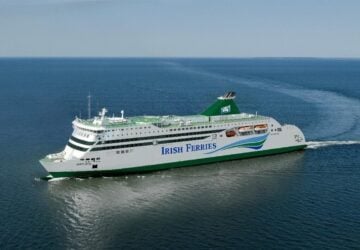Advertisement
Nike, one of the world’s largest sports apparel and footwear brands, has a significant presence in Spain. The company has been able to establish itself as a leading sports brand in the country by focusing on innovation, design, sustainability, and strategic marketing.
History
Nike‘s journey in Spain began in the early 1980s, when the company started expanding its global presence. The first Nike store in Spain opened in Barcelona in 1985, and a second store was opened in Madrid in 1987. Since then, Nike has expanded its presence in the country, and today it has over 60 retail locations, including flagship stores in Madrid, Barcelona, and Valencia.
The symbol of quality and performance in the athletic apparel industry
Nike has been successful in Spain, thanks to its strong brand identity. The company has marketed its products as a symbol of innovation, excellence, and style. The Nike swoosh logo has become a symbol of quality and performance in the athletic apparel industry. Additionally, the company’s commitment to innovation has helped it to develop cutting-edge technologies and materials that set it apart from its competitors.
 In Spain, Nike has been successful in adapting to the unique cultural and social dynamics of the country. Spain has a rich history of sports, with football being the most popular sport in the country. Nike has capitalized on this by sponsoring several sports teams and events in the country, including the Spanish national football team, FC Barcelona, and Real Madrid. The company has also partnered with several Spanish athletes, such as Rafael Nadal and Pau Gasol, to develop signature products and promote its brand.
In Spain, Nike has been successful in adapting to the unique cultural and social dynamics of the country. Spain has a rich history of sports, with football being the most popular sport in the country. Nike has capitalized on this by sponsoring several sports teams and events in the country, including the Spanish national football team, FC Barcelona, and Real Madrid. The company has also partnered with several Spanish athletes, such as Rafael Nadal and Pau Gasol, to develop signature products and promote its brand.
Sustainable
One of the most significant factors contributing to Nike‘s success in Spain has been its commitment to sustainability. The company has implemented several initiatives to reduce its environmental impact, such as using recycled materials in its products and reducing its carbon emissions. In 2020, Nike launched its “Move to Zero” campaign, which aims to achieve zero carbon and zero waste in its operations by 2050. The campaign has been well-received in Spain, where consumers are increasingly aware of the importance of sustainability and environmental responsibility.
Contribution to the Spanish market
Nike‘s impact on fashion has been another significant contribution to the Spanish market. The company’s innovative designs and focus on style have made its products popular among fashion-conscious consumers in Spain. Nike has collaborated with several fashion designers and influencers in the country to develop exclusive collections and promote its brand. Nike‘s ability to combine design and functionality has made its products versatile and suitable for both athletic and casual wear, making it a favorite among Spanish consumers.
Marketing Strategy
In addition to its strategic marketing efforts in Spain, Nike has also been successful in developing campaigns that resonate with Spanish consumers. One of its most successful campaigns was the “Nothing beats a Madridista” campaign, which targeted fans of Real Madrid. The campaign featured several Real Madrid players, including Cristiano Ronaldo and Sergio Ramos, and emphasized the team’s history and culture. The campaign was well-received by fans and helped to strengthen Nike‘s position as a leading sports brand in Spain.
Another key factor in Nike‘s success in Spain has been its commitment to engaging with local communities. The company has been involved in several community initiatives, including sponsoring sports events and supporting local athletes. Nike has also partnered with local organizations to promote physical activity and healthy living among Spanish youth.
 Looking ahead, Nike‘s commitment to innovation, sustainability, and community engagement is likely to continue to drive its success in Spain. The company’s ability to adapt to the unique cultural and social dynamics of the country and its focus on design and functionality will likely keep it at the forefront of the athletic apparel industry. With its strong brand identity and strategic marketing efforts, Nike is well-positioned to remain a leading sports brand in Spain for years to come.
Looking ahead, Nike‘s commitment to innovation, sustainability, and community engagement is likely to continue to drive its success in Spain. The company’s ability to adapt to the unique cultural and social dynamics of the country and its focus on design and functionality will likely keep it at the forefront of the athletic apparel industry. With its strong brand identity and strategic marketing efforts, Nike is well-positioned to remain a leading sports brand in Spain for years to come.
Despite Nike‘s success in Spain, the company has faced some challenges in recent years. One of the most significant challenges has been the increasing competition from other sports apparel and footwear brands. Companies like Adidas, Puma, and Under Armour have all been vying for a share of the Spanish market, offering similar products and competing for the same consumers.
Innovation and Design
To stay ahead of its competitors, Nike has continued to focus on innovation and design. The company has launched several new products in Spain, including its Nike Flyknit shoes, which use a unique weaving process to create a lightweight and durable shoe. Nike has also continued to develop new technologies and materials to enhance the performance and comfort of its products.
Challenges
Another challenge that Nike has faced in Spain is the changing consumer behavior. Spanish consumers are increasingly turning to online shopping and social media for their purchasing decisions. To adapt to this trend, Nike has invested in its online presence, launching a dedicated website for the Spanish market and using social media to connect with consumers.
Nike has also faced criticism in Spain over labor practices in its supply chain. The company has been accused of using sweatshop labor in some of its factories, which has led to protests and calls for boycotts. In response, Nike has implemented several initiatives to improve labor conditions in its supply chain, such as conducting regular audits and working with suppliers to improve working conditions.
Conclusion
In conclusion, Nike‘s journey in Spain has been marked by success, innovation, and strategic marketing. The company has been able to establish itself as a leading sports brand in the country by focusing on design, functionality, sustainability, and community engagement. Despite facing challenges, Nike is well-positioned to continue its success in Spain by adapting to changing consumer behavior and maintaining its commitment to innovation and social responsibility. With its strong brand identity and loyal consumer base, Nike is poised to remain a dominant force in the Spanish market for years to come.










